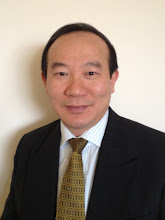Chinese Herbalism
Traditional Chinese Medicine (TCM) is an ancient system of healing that bases diagnosis on an individual's pattern of symptoms rather than looking for a named disease - an approach very different to that of Western medicine. Chinese herbalism is one element of TCM, which covers a wide range of therapies, from acupuncture and qigong to herbal remedies and dietary regimes. Although acupuncture is better known in the West, herbal medicine is overwhelmingly more important in China, and practitioners of Chinese herbalism can now be found worldwide.
Historical evidence shows that activities associated with TCM in China date back to the Shang Dynasty (14th - 11th centuries BCE). Two key aspects of TCM theories are "The Five Elements" and "The Yin and Yang Concepts". The Five elements are commonly associated with Yin and Yang as each of the five elements are believed to have a yin organ and a yang organ. The five elements are fire, earth, metal, water and wood. These are all linked together in two cycles: Fire turns to ash (earth), ash yields up metal, metal condenses water, water nourishes wood, wood burns as fire. The other cycle being: fire melts metal, metal cuts wood, wood breaks through earth, earth dries up water, water douses fire. Yin organs are believed to hold energy whilst yang organs are known to channel energy. Traditional Chinese Herbalism usually uses dried herbs that are consumed to help with these two key aspects as well as improving the body in many other ways.


0 Comments:
Post a Comment
Subscribe to Post Comments [Atom]
<< Home